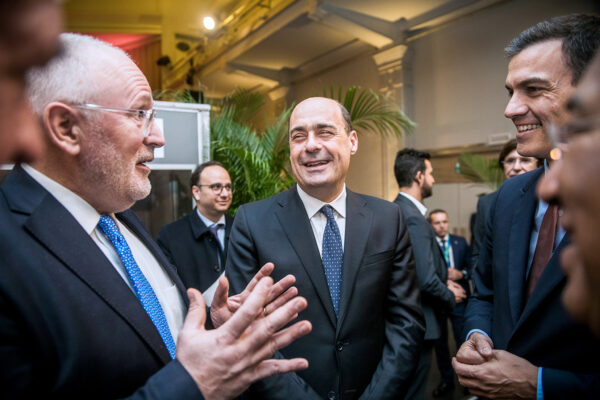
It is time for Prime Minister Pedro Sánchez to accept that little more will come of his overtures to Spain’s conservative opposition.
Sánchez, a social democrat who rules in coalition with the far-left Podemos (We Can), came to power with the support of Basque, Catalan and other regional parties.
But since the outbreak of coronavirus disease, he has tried to build broader support for his recovery programs.
I argued in July that Sánchez was walking a fine line. Make too many compromises with the right and Podemos and the Catalan Republican Left could feel betrayed.
That point is approaching fast.
Not in vain
The outreach hasn’t been completely in vain. The new leader of the liberal-nationalist Citizens, who were decimated in the last election when they shifted too far to the right, has made common cause with Sánchez.
The conservative People’s Party did support economic and health-care programs to cope with the immediate effects of COVID-19.
But it is unwilling to support social reforms that include rental protections, a basic minimum wage and measures against gender violence.
Nor is it willing to vote for Sánchez’ proposed budget so long as he doesn’t distance himself from Podemos and Catalan separatists.
“We will lend support,” People’s Party leader Pablo Casado said after meeting with Sánchez on Wednesday, “if the other does not support radicals.”
Sánchez had earlier called for “unity of action” and an end to “party squabbling”.
Restless
While trying to win over the People’s Party, Sánchez has been putting off talks with the Catalans, who are growing restless.
The Republican Left is competing with hardline separatists in its region, who argued from the start that Sánchez could not be trusted. Sánchez promised talks about more autonomy in return for the Republican Left’s support. If those talks — on hold due to the pandemic — are postponed indefinitely, and there is no amnesty for the nine separatist leaders who are in prison for leading a failed breakaway from Spain in 2017, separatist voters could lose what little hope they have of negotiated solution.
Podemos doesn’t have anywhere else to go, but its popularity is down from a high of 21 percent in the 2016 election to 10-12 percent in recent surveys. At some point it might tire of being taken for granted.
Too far apart
If Sánchez assumes the People’s Party will want to make a deal in order to appeal to centrist voters, he is mistaken. Casado has made clear, in two elections in a row, that he is more interested in competing with the far right, which argues for cutting public funding for abortions, deporting illegal immigrants, revoking Catalonia’s autonomy and taking Gibraltar back from the British.
There is a reason negotiations for a German-style grand coalition failed after the last election. The Socialists and the People’s Party are too far apart. The pandemic has only brought them so much closer.
Podemos — the only national party in Spain that supports a Catalan right to self-determination — has been loyal to the government, despite not seeing many of its priorities, from nationalizing industries to pulling out of NATO, realized.
The Republican Left still hasn’t given up on the possibility of a deal, despite not getting anything from Sánchez in the last year and despite its own leader, Oriol Junqueras, being one of the nine separatists in prison.
Sánchez has come as far as he can with the right. He needs to pay more attention to his friends.
